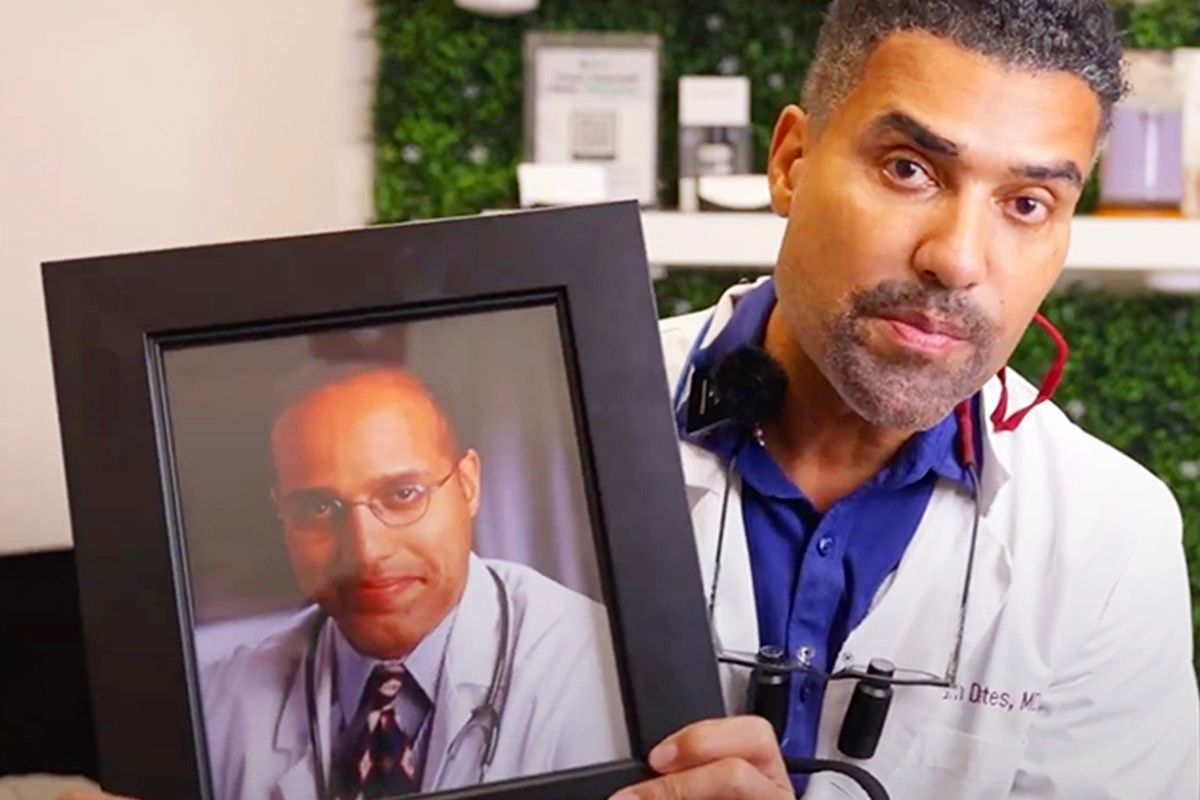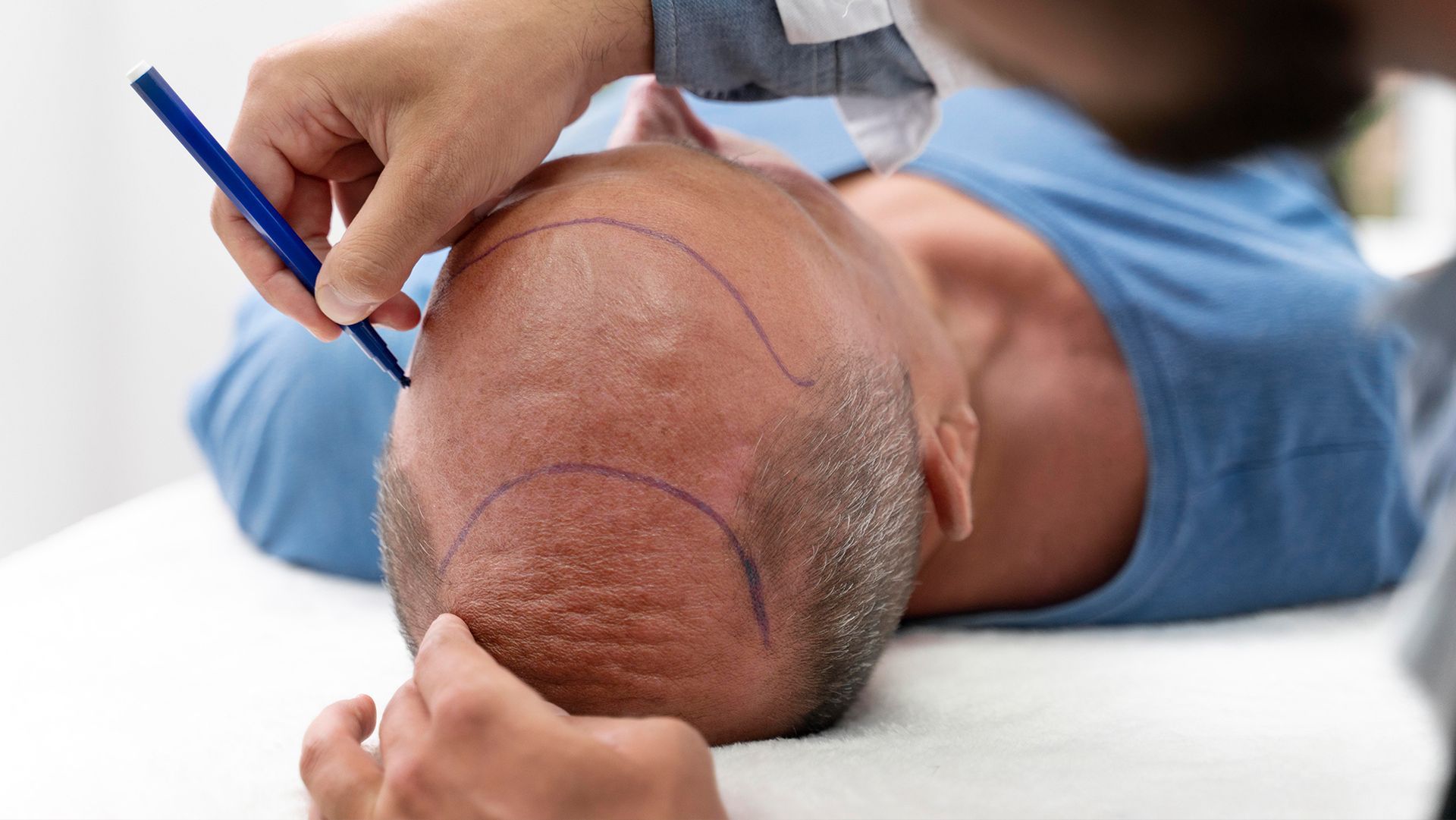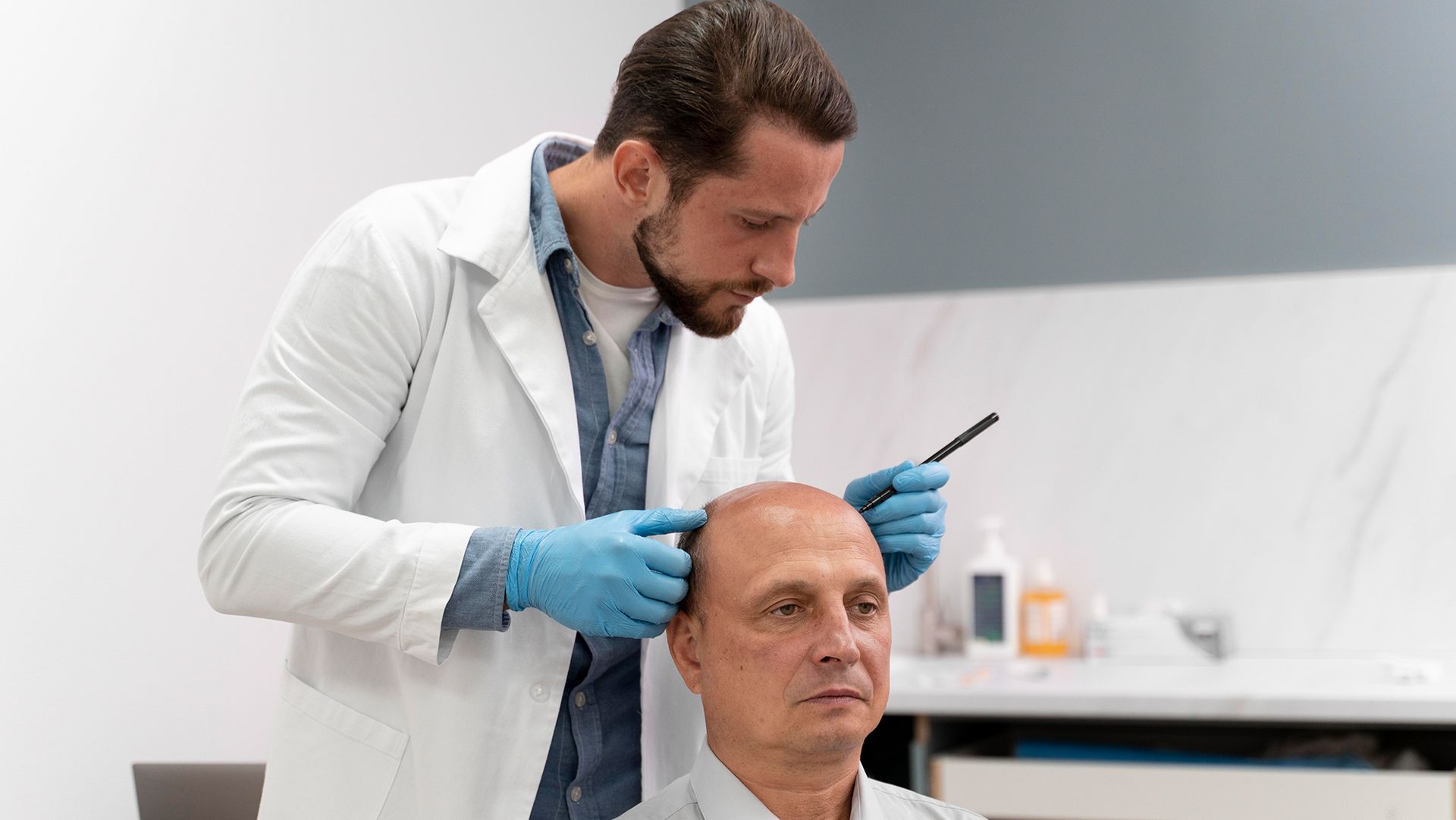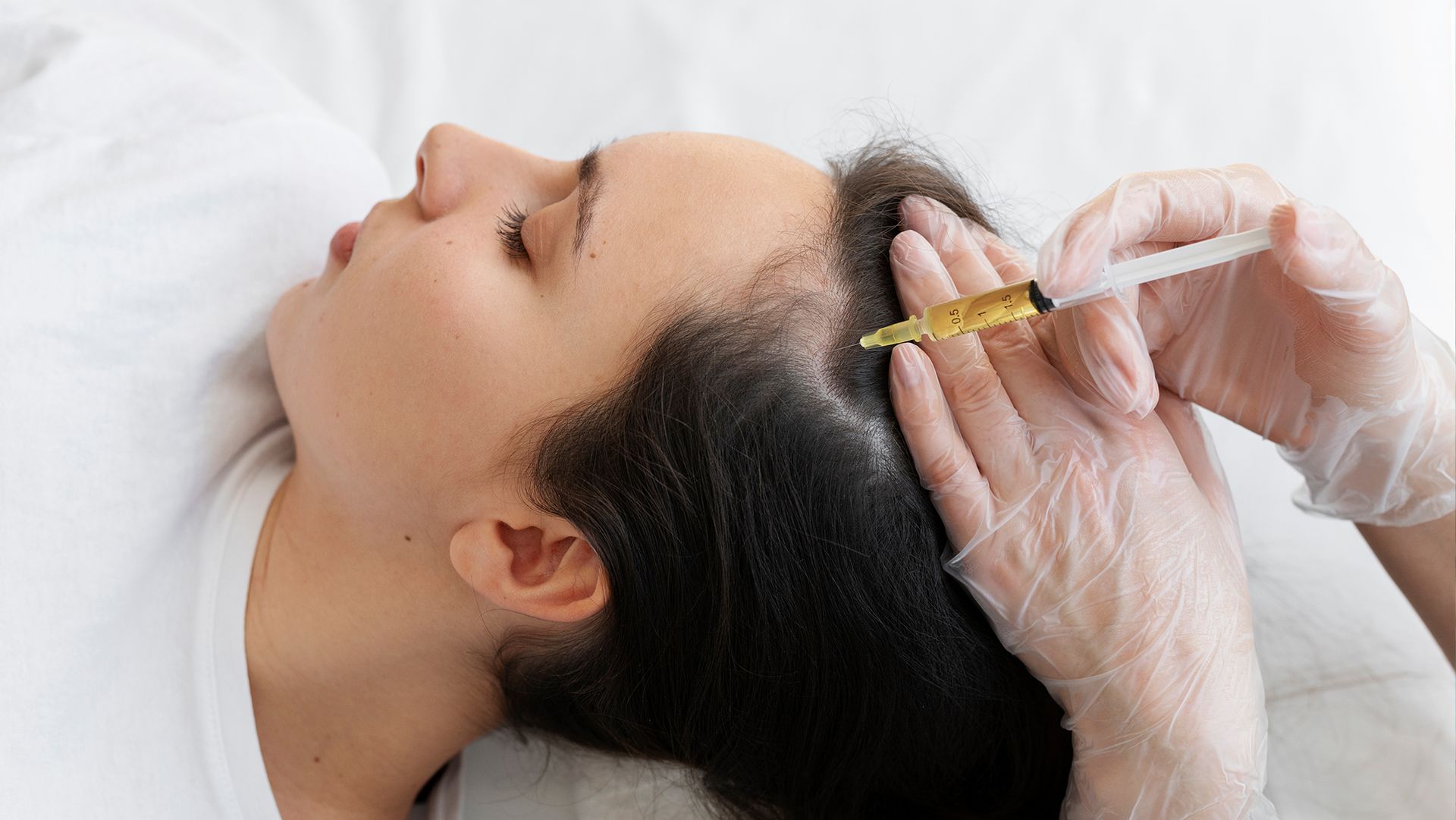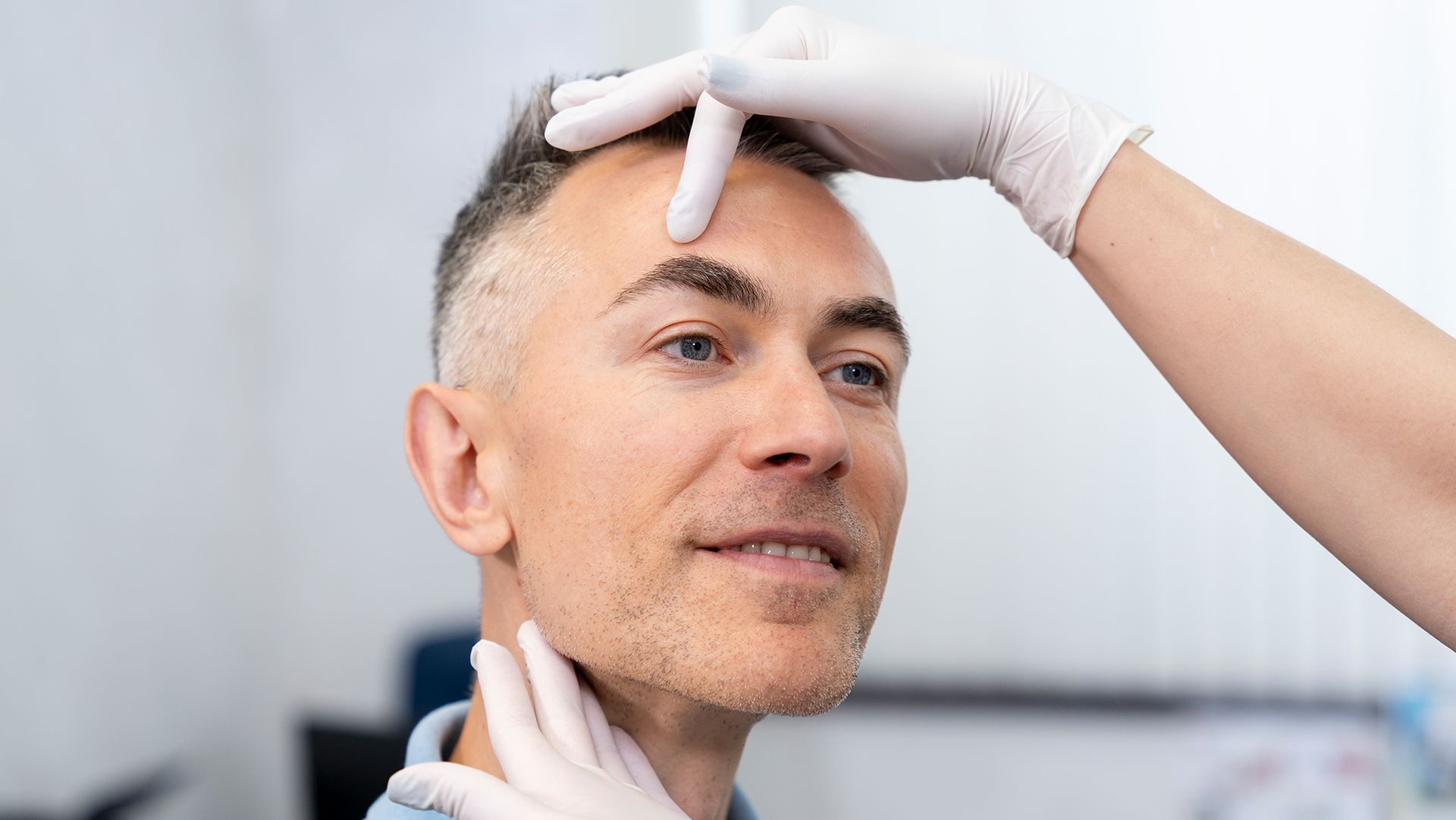Dr. Yates Performs Hair Transplant for Matthew Erich “Mancow” Muller
Dr. Yates Performs Hair Transplant for Matthew Erich “Mancow” Muller
Many of you have heard of Mancow (Matthew Erich “Mancow” Muller), since he is known for being a world famous radio and television host. Mancow is best known for his radical and innovative morning shows and is considered a shock jock. Mancow has hosted a few very well-known radio shows, including Mancow’s Morning Madhouse, The Mancow Radio Experience and can now be heard on The Mancow Show, weekday mornings from 6-10am on The Loop 97.9 FM on WLUP.com.
What some of you may not be aware of is that Mancow sought out Dr. Yates, the premier hair loss physician and hair replacement surgeon in the Midwest, to do a hair transplant for him. Dr. Yates is a true leader in hair restoration and he is one of the only surgeons in the United States that truly focuses his practice in every technique available for hair restoration. Mancow chose Dr. Yates to perform his hair restoration procedure and was beyond thrilled with the outcome.
“My next thought was why aren’t more men, I mean many men are, but I’m just saying why would you wait? I waited, and I’m ‘mad.’ When you do it you’re going to be like gosh why did I wait?” Mancow further explained his experience and said, “It’s permanent hair. It’s incredible.” The full radio clip can be heard by visiting https://dryateshairscience.com/seen-on-tv/.
Whether we like it or not, we live in a society that is extremely focused on youth, and as Mancow stated, we will usually be sized up in about 60 seconds when we meet someone new. Unfortunately, people are often judged by how they look and this causes people to become self-conscious about their looks. Hair is an area that many men are troubled by, since most men will suffer from some degree of hair loss by the time they are in their 50s. Like Mancow pointed out, if your bald spot, or thinning hair, is something that is bothering you, you should look more into getting a hair transplant.
Follicular Unit Extraction (FUE) is the method that Dr. Yates uses and it is a minimally invasive hair restoration procedure that uses surgical robotic technology. This procedure is performed under local anesthesia and during it, the hair or follicular units are individually harvested or punched from the back of the scalp or donor area. Dr. Yates utilizes the most advanced ARTAS Robotic Hair Transplant system or various manual, hand-held instruments to delicately punch out each individual hair follicle. Micro-incisions will be used to create sites to place each individual follicular unit, which will then grow into a natural and undetectable pattern over the course of a year. The results are extraordinary, natural and permanent hair that can be worn in any style and there is absolutely no cutting, no stitching and no scarring.
Dr. Yates has performed thousands of FUE procedures for patients who come from all over the world to have their hair transplant performed by the most experienced and accomplished physician. Dr. Yates was invited to join Mancow live on his show to discuss the experience, “Lebanese American Chamber of Commerce Executive visits Chicago’s hottest radio station 97.9 The Loop Chicago’s Classic Rock Station to join Mancow Muller’s live 97.9 The Loop’s Mancow’s Morning Madhouse show and discuss Mancow Muller’s experience with Dr. William Yates “The Hair Loss Expert” doing the FUE hair restoration procedure.” More can be seen by visiting https://m.facebook.com/lebanesechamber/photos/a.147719198606468.29578.146113682100353/1014670625244650/.
